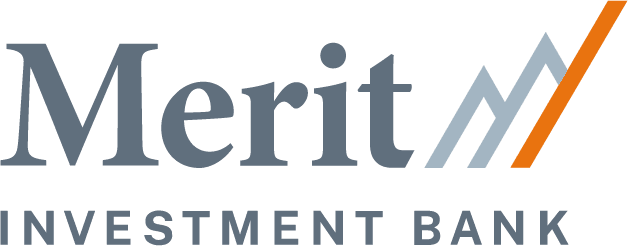The 3 Most Common Deal Killers
Kirk Michie | Candor Advisors
I once worked with a client who firmly believed his business was worth $80-$100 mm. No discounted cash flow analysis, no precedent transaction work, and nothing specific to comparable market feedback fueled his assessment. It was a “gut” thing, and he just believed it. His business generated $6mm of EBITDA and grew at 8%-10% a year, having a solid market position, respected brands, and several other positives. The market, however, saw his over 20-year-old manufacturing business as worth less than half – closer to $40mm. That was a problem, and it is not an uncommon one. To help sellers avoid this problem when they are ready to sell their business, here are the three most common deal killers and how to prevent them from decreasing value in your sale.
Deal Killer #1 – Seller Expectations
A founder who’s considering a sale to an outside buyer, whether your buyer is a “strategic” company, your same or adjacent business, or a financial buyer (like a private equity firm), their assessment of what to offer you for your business will not be based on gut. It will be calculated based on multiple of your financial results and adjusted for your impact on the business as the owner. It will then be discounted by the likelihood that any of your financial products won’t continue and increased by whatever projected growth is credibly on the horizon for the company.
Think of it as a simple formula:
FINANCIAL RESULTS – (RISKS) + GROWTH = VALUATION
As you can see, the valuation of your company has nothing to do with your expectations, feelings, or beliefs. No one involved in this scenario is a bad guy (or gal) either; not you for having those feelings or them for using their formula. The buyer likely has no predatory intent, but their motivation is different from yours. They seek to pay no more than they have to for your company. They also have lenders, investors, or shareholders to ensure they got the sale at the best price.
The solution to making sure your expectations don’t kill your deal is to plan for what you need, not want, from the net proceeds of your sale and work back from there. Then seek experienced guidance of valuation, market environment, and determining which factors are most critical to you in ceding or sharing control of your most valuable asset. Know what you absolutely have to have, which things you’d prefer but aren’t essential, and under what conditions you’d walk away from an otherwise reasonable offer from a buyer. This assessment is your guard against your gut.
Deal Killer #2 – Buyer Chemistry
Many founders make the mistake of believing that the right buyer is the one that offers the highest price for their company. On its face, the rationale makes sense and feels good. After all, in most cases, sellers have big plans for the after-tax proceeds of the sale. They may want to endow the rest of their lives and their family’s lifestyle, replace their income, and maybe even check a thing or two off their bucket list. Right? Well, maybe.
If you’re not overly concerned about your legacy and employees while assuming you’re receiving all cash and ultimately exiting the company (which is very rare), then maybe the highest price is the right outcome for you. But more often, Founders care. They care about what happens to their people, preserving their legacy, and company culture as they will probably be involved in the business for some period after the sale. All of this will play a part in thinking about not just selling and walking away, but in partnering and moving forward. Here you see, it will be about much more than money. It’s about chemistry; how they treat you. How you think they’ll treat your employees. How they’ll care for your company, even when it’s not yours anymore.
Sure, you’ll eventually leave completely, but until then, you’ll want to make sure you’re working with the right financial partner. A firm or a successor who sees your vision and can extend and expand on the business you’ve spent years, possibly decades building. So, pay attention! This is a place where your gut can be helpful. If you don’t like your buyer while they’re courting you in management meetings and invasively performing necessary due diligence, then it’s unlikely you’ll like them any better when they’ve taken control of the company and no longer have to be on their best behavior.
There’s only one solution for poor chemistry, especially if you’re committing to being involved with the business for a significant period – walk away. With the right advisor and a solid sale process, there’s usually more than one “ideal” buyer for your business. Heed your advisor’s guidance, take advantage of their experience, and check-in with your instincts for good relationships to get the best fit.
Deal Killer #3 – Poor Preparation
When you decide it’s time to sell, before you start shopping for exotic cars and exploring private jet travel, take a step back. Button up your financial controls, your legal vulnerabilities, HR and tax issues, and anything else that would be hard to explain or cost additional money and time for your buyer. When you make what is legally referred to as “Representations and Warranties,” you’ll hold to a very high standard about “you know” or “should have known” as the new buyer takes control.
Your buyer is more experienced at acquiring than you are at selling. Their team is financially savvier than you or your executive team. Once they’ve decided to buy your business, it’s in their interest in the due diligence process to find problems that will allow them to pay less for the company. This increases their potential return on investment or alerts them to risks that may cause them to avoid your company entirely. And know, due diligence will feel invasive, accusatory, and never-ending. It just is. Don’t resent the process; just be prepared for it, and keep your eye on the prize.

With the right advisor, pre-sale planning, and navigating due diligence, the sale will be much smoother and allow you to equalize the imbalance between the buyer’s experience advantage over you and your team. And whether you use an advisor or try it on your own (beware that it often costs you more $ and heartache than you save in fees), they’ll tell you to focus on three key elements:
-
- Financial reporting, accrual-based accounting, and preparedness for reviewing the “quality of earnings” for your business.
- Review of Legal, Regulatory, and HR to ensure compliance, uncover potential problems for remediation (or at least, explanation), and allow you to commit to those “Representations and Warranties” with more comfort and confidence.
- Evaluation of opportunities for additional growth to entice the buyer to pay more than a backward-looking valuation might suggest and to overlook or accept some of the less attractive elements of your company (hint – every business has them).
Buyers are becoming savvier and savvier all the time. Hoping that they won’t look too closely, judge too harshly, or change their offer over things they find in due diligence is a flawed strategy. Hope is not a strategy at all, and your gut is not a good valuation tool. As a potential seller, bite the bullet and look at your business through a less rosy lens, figure out what you really need and what your true bottom lines are. Then seek out an advisor(s) to even things out, do some of the grunt work and heavy lifting, and give you an advantage when it comes time to go to market.

0 Comments